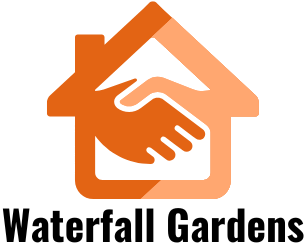Imagine walking into your home, and with a simple voice command, the lights dim, your favorite playlist starts, and the thermostat adjusts to that perfect temperature. Home automation systems are no longer just a dream; they’re the new norm for modern living. These smart technologies not only simplify daily tasks but also add a sprinkle of magic to everyday life.
With the right home automation setup, you can control everything from your coffee maker to your security system—all while lounging on the couch in your pajamas. Who knew that managing your home could feel like being the wizard of your own castle? As technology evolves, so does the potential for convenience and efficiency. Dive into the world of home automation and discover how it’s transforming homes into intelligent havens.
Table of Contents
ToggleOverview of Home Automation Systems
Home automation systems simplify daily tasks through technology integration. These systems connect and control devices within a residence, enhancing convenience and efficiency. Smart lighting systems, for example, allow for remote adjustments based on user schedules. Thermostats automatically regulate temperatures, contributing to energy savings while maintaining comfort levels.
Voice-activated assistants play a crucial role, enabling users to manage home functions hands-free. Security cameras and smart locks bolster home safety, offering real-time monitoring and remote access features. Users also experience a more cohesive atmosphere with multi-room audio systems, ensuring music flows seamlessly throughout the home.
The Internet of Things (IoT) fuels the growth of automation technology, as devices interconnect for better functionality. Integration of appliances enhances usability and control. Homeowners often report increased enjoyment, knowing they can tailor their environments to specific needs.
Many systems feature compatibility with third-party services, promoting a versatile ecosystem. Integration options exist for various device brands, allowing comprehensive control from a single application. Home automation systems effectively transform ordinary spaces into intelligent environments, adapting to user preferences and behaviors.
Recent statistics indicate that the global smart home market will grow to over $170 billion by 2025, reflecting a significant trajectory in adoption rates. Users continue seeking innovative solutions that meet their lifestyle expectations and enhance overall quality of life. This trend underscores the significance of home automation as a transformative element in modern housing.
Benefits of Home Automation Systems
Home automation systems offer numerous advantages, enhancing comfort and safety in daily living. These systems drastically improve user’s quality of life.
Increased Convenience
Automation streamlines routine tasks, allowing users to manage their homes effortlessly. Users can control lighting, heating, and entertainment systems through smartphones or voice commands. Scheduling enables lights to turn on or off at specific times, saving energy. Smart thermostats adjust temperatures based on occupancy, ensuring comfort when needed. For entertainment, one touch can initiate multi-room audio or set the TV to a favorite channel. Accessibility boosts user experience, especially for those with mobility challenges, enabling greater independence. This level of convenience not only saves time but also creates a more harmonious living environment conducive to modern lifestyles.
Enhanced Security
Home automation systems significantly enhance home security through innovative features. Smart cameras provide real-time video feeds, allowing users to monitor their properties remotely. Motion detectors trigger alerts, notifying homeowners of unusual activity. Smart locks offer secure entry with customizable access codes for family and friends. Additionally, users can receive instant notifications on their smartphones if security breaches occur. Integration with alarm systems ensures immediate responses to threats, providing peace of mind. These advancements empower homeowners to manage their security from anywhere, making homes safer and more secure, reinforcing trust in the technology protecting them.
Types of Home Automation Systems
Home automation systems come in various categories, each tailored to enhance specific aspects of daily living. The types include smart lighting, smart climate control, and smart security systems, all designed to improve convenience and efficiency.
Smart Lighting
Smart lighting transforms how users manage illumination in their homes. These systems enable remote or automated control over lights through apps or voice commands. Schedules can be set for lights to turn on or off, creating the appearance of occupancy even when residents are away. Additionally, users can adjust brightness and color temperatures for different moods or activities. Energy-efficient LED options further reduce electricity consumption, contributing to overall savings. With sensors, lights can react to movement, enhancing both accessibility and security. Comfort increases, and ambiance optimizes throughout various living spaces.
Smart Climate Control
Smart climate control offers precise management of indoor temperatures. Homeowners can remotely adjust thermostats using smartphones or voice activation, providing convenience whether at home or away. Many systems learn user preferences, gradually optimizing schedules for heating or cooling. These technologies contribute to comfort by maintaining ideal conditions based on occupancy and time of day. Integration with weather forecasts allows systems to adapt to external conditions, boosting energy efficiency. Furthermore, zoning capabilities let users tailor climate control for individual rooms, ensuring personalized comfort throughout the home.
Smart Security Systems
Smart security systems significantly enhance home safety with state-of-the-art technology. Features include video doorbells, smart cameras, and motion detectors that provide real-time monitoring for potential threats. Remote access allows users to view camera feeds and receive alerts on their smartphone when unusual activity occurs. Customizable access codes for smart locks ensure only authorized individuals can enter the home. Integration with other security solutions, such as alarms and sensors, creates a comprehensive monitoring environment. Users enjoy peace of mind knowing they can manage their home security from anywhere, reinforcing their confidence in the technology protecting their assets.
Key Features to Consider
Home automation systems offer a variety of essential features that enhance user experience. Evaluating these attributes helps in selecting the right system suited to individual needs.
Compatibility with Devices
Compatibility plays a critical role in home automation systems. Systems that integrate seamlessly with various devices allow users more flexibility. Examples of compatible devices include smart lights, thermostats, and security cameras. A system that supports multiple brands enhances versatility, enabling homeowners to mix and match devices without limitations. Systems that work well with smartphones and tablets promote ease of use and management. Research shows that 70% of consumers prioritize device compatibility when selecting automation solutions, indicating its significance in decision-making.
User Interface and Usability
User interface design profoundly influences the effectiveness of home automation systems. Intuitive interfaces simplify interactions, making it easy for users to navigate through options and features. Systems that offer voice control add another layer of accessibility, especially for individuals with mobility challenges. Comprehensive mobile applications enable remote management, fostering convenience in daily tasks. A responsive interface boosts user satisfaction and encourages engagement. Reports state that 80% of users prefer systems with user-friendly applications, highlighting the importance of usability in overall experience.
Popular Home Automation Brands
Many popular home automation brands dominate the market, offering diverse solutions for consumers. Amazon Alexa stands out with its voice-activated capabilities, allowing users to control various smart devices seamlessly. Google Nest provides excellent integration with Google services, enhancing home connectivity with its range of smart speakers and displays.
Apple HomeKit appeals to those invested in the Apple ecosystem, supporting compatible smart devices while ensuring robust security features. Samsung SmartThings excels in versatility, enabling users to manage a wide array of devices from different manufacturers within one app.
Ecobee manufactured smart thermostats that learn user preferences and optimize energy savings effectively. Ring, known for its video doorbells and advanced security systems, allows homeowners to monitor their properties remotely, enhancing safety.
Philips Hue leads in smart lighting, offering customizable options for ambiance and energy management. Arlo focuses on security cameras, providing high-definition video feeds and innovative features like motion detection alerts.
August specializes in smart locks, granting customizable access for family and friends, which strengthens home security and convenience. Wyze captures attention with affordable smart gadgets, demonstrating that quality doesn’t always mean a high price tag.
For brand selection, prioritization of compatibility is crucial. Research shows that 70% of consumers consider device compatibility during decision-making. Featuring user-friendly applications further enhances satisfaction, with 80% of users favoring intuitive designs. Together, these brands contribute significantly to the home automation landscape, enabling smarter, more connected living environments.
Home automation systems are revolutionizing the way people interact with their living spaces. By seamlessly integrating technology into everyday tasks, these systems enhance comfort, efficiency, and security. As homeowners embrace smart solutions, they gain control over their environments like never before.
The growing market for home automation reflects a shift towards more intelligent living, with users seeking systems that offer convenience and peace of mind. With advancements in compatibility and user-friendly designs, it’s clear that the future of home automation promises even greater innovations.
Investing in these technologies not only simplifies daily routines but also transforms homes into smart ecosystems. As this trend continues to evolve, homeowners can look forward to a more connected and secure lifestyle.



